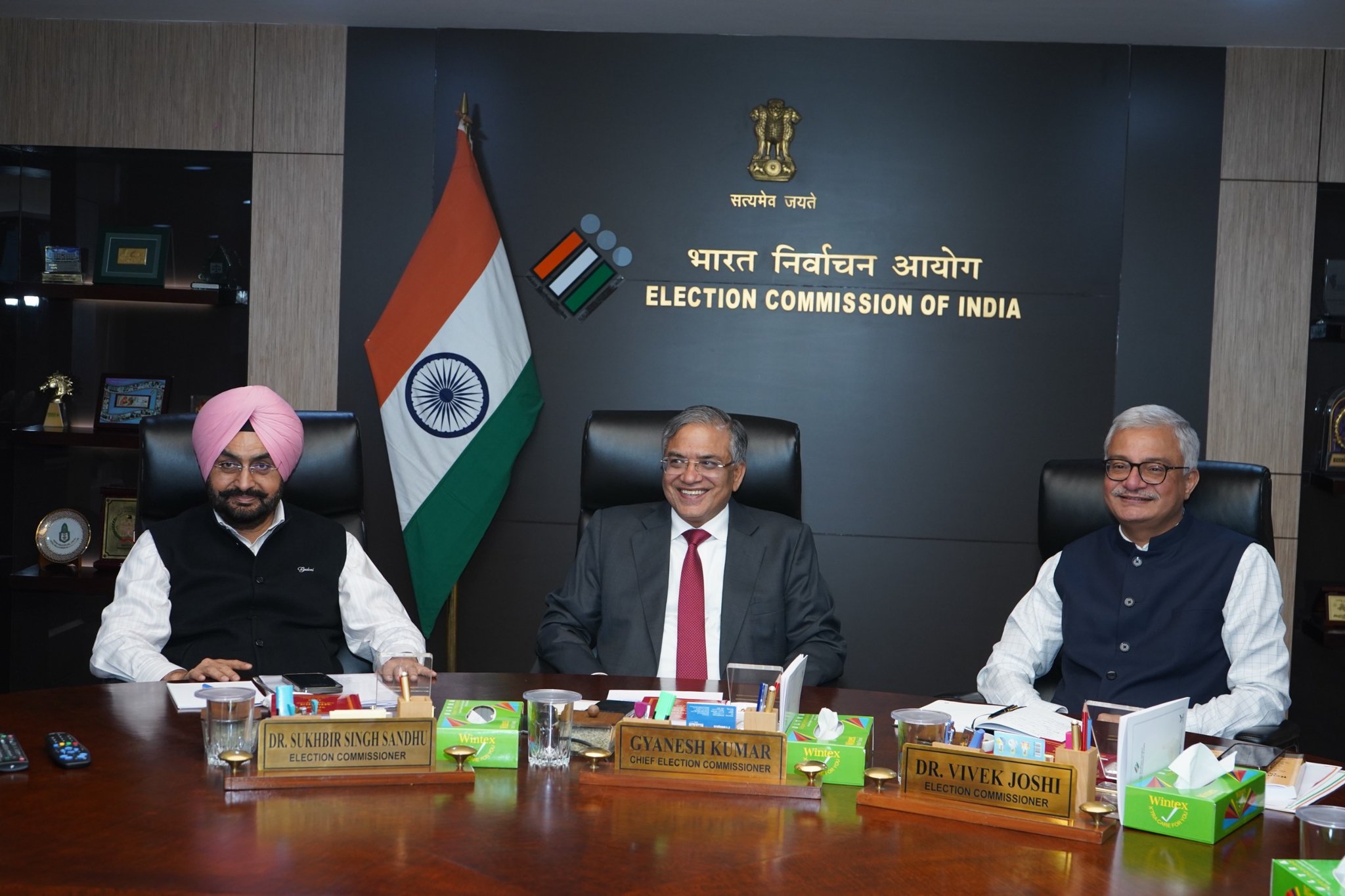ECI Engages Political Parties Nationwide to Resolve Issues
The successful execution of these engagements reflects the ECI's commitment to ensuring transparency, fairness, and integrity in the electoral process.

- Country:
- India
The Election Commission of India (ECI) has successfully conducted a series of comprehensive engagements with political parties across the country, aiming to resolve various electoral issues and ensure smooth functioning of the electoral process. The engagements took place at the level of Electoral Registration Officer (ERO), District Election Officer (DEO), and Chief Electoral Officer (CEO) throughout the nation, spanning a 25-day period ending on 31st March 2025.
During this period, a remarkable total of 4,719 meetings were held, which included 40 meetings by CEOs, 800 by DEOs, and 3,879 by EROs. These engagements were attended by more than 28,000 representatives from various political parties, showcasing the significance and scale of the initiative. The meetings were part of the Election Commission's broader effort to address electoral issues and improve the voter registration process, thus strengthening the electoral system in India.
This initiative was led under the guidance of the Chief Election Commissioner (CEC), Shri Gyanesh Kumar, along with Election Commissioners Dr. Sukhbir Singh Sandhu and Dr. Vivek Joshi, who issued directives for these engagements during the Chief Electoral Officers' conference held on March 4-5, 2025, at IIIDEM, New Delhi. The conference outlined the framework and objectives for these crucial interactions, emphasizing the importance of resolving pending issues within the existing legal frameworks, including the Representation of the People Act, 1950 and 1951, the Registration of Electors Rules, 1960, the Conduct of Elections Rules, 1961, and other manuals, guidelines, and instructions issued by the ECI from time to time.
The primary aim of these engagements was to ensure that any outstanding issues related to the electoral process were addressed by the competent authorities, whether at the ERO, DEO, or CEO level. These meetings also provided political parties with a platform to raise their concerns, ask for clarifications, and seek resolutions. ECI officials promised that any issues that could not be resolved within the existing legal framework would be escalated for further consideration by the Commission itself.
The engagements received an overwhelmingly positive response from political parties across the country. Representatives from various political organizations participated actively, expressing their views and collaborating with the Election Commission to address any potential roadblocks to a smooth and fair electoral process. These interactions were held across Assembly Constituencies, districts, and States/Union Territories (UTs), which ensured that concerns from all regions were captured and addressed.
The Election Commission has also requested an action taken report from all State and UT CEOs to assess the progress and effectiveness of these engagements. Any issues that remain unresolved will be taken up by the Commission for further examination and necessary action.
The successful execution of these engagements reflects the ECI's commitment to ensuring transparency, fairness, and integrity in the electoral process. It also underscores the importance of continued dialogue between the Election Commission and political parties to address challenges and improve the functioning of the democratic system.
To stay updated on the latest developments, photos, and insights from these nationwide meetings, the public can follow the official social media handle of the Election Commission of India on X (formerly Twitter) at https://x.com/ECISVEEP?ref_src=twsrc%5Egoogle%7Ctwcamp%5Eserp%7Ctwgr%5Eauthor.
This extensive engagement initiative further strengthens the relationship between the Election Commission and political parties, ensuring the continued evolution of India's electoral system, fostering transparency, and enhancing public trust in the democratic process.
- READ MORE ON:
- Election Commission of India
- political parties
- Gyanesh Kumar










